Have you ever been caught off guard by a dog’s temperament? Maybe you met a massive breed and expected a whirlwind of chaos, only to discover a gentle giant. Or perhaps you were surprised when a cute, fluffy pup turned out to be a handful! The truth is, a dog’s personality often defies first impressions. If you’re a dog lover—or even a horse lover curious about canine companions—knowing which breeds are naturally gentle and which need a bit more guidance can make all the difference. Get ready to be surprised, inspired, and maybe even rethink what you know about man’s best friend!
Golden Retriever: The Classic Gentle Soul
Golden Retrievers are famous for their loving and patient nature. They are often described as the best family dogs because they seem to adore everyone—kids, adults, and even other animals. Their gentle mouths, originally bred for retrieving game, mean they’re less likely to nip or bite. Many Golden Retrievers work as therapy dogs, comforting people in hospitals and nursing homes. They have a calm energy that makes them easy to train. Even in stressful situations, they rarely show aggression. For families or individuals seeking a trustworthy, soft-hearted companion, a Golden Retriever seldom disappoints.
Newfoundland: The Sweet Giant
At first glance, a Newfoundland’s size can be intimidating. But beneath all that fur and muscle is a heart of gold. These dogs are often called “nanny dogs” because of their protective, gentle attitude toward children. They are known to be patient even when toddlers tug their ears or climb onto their backs. Newfoundlands love water and are natural lifeguards, sometimes rescuing people from drowning. Their calm, steady presence makes them ideal for homes with lots of activity. Despite their size, they rarely throw their weight around and are usually more interested in cuddles than chaos.
Cavalier King Charles Spaniel: Small Yet Sweet
Don’t let their royal name fool you—Cavalier King Charles Spaniels are down-to-earth sweethearts. These small dogs thrive on human affection and are happiest curled up in a lap. Their gentle demeanor makes them perfect for families with young children or elderly members. Cavaliers often get along with other pets, including cats and even horses. They are sensitive to their owner’s moods and love to offer comfort. Their adaptability means they do well in city apartments or country homes. If you want a dog that’s more likely to lick than bark, a Cavalier is a top choice.
Bernese Mountain Dog: Calm and Caring
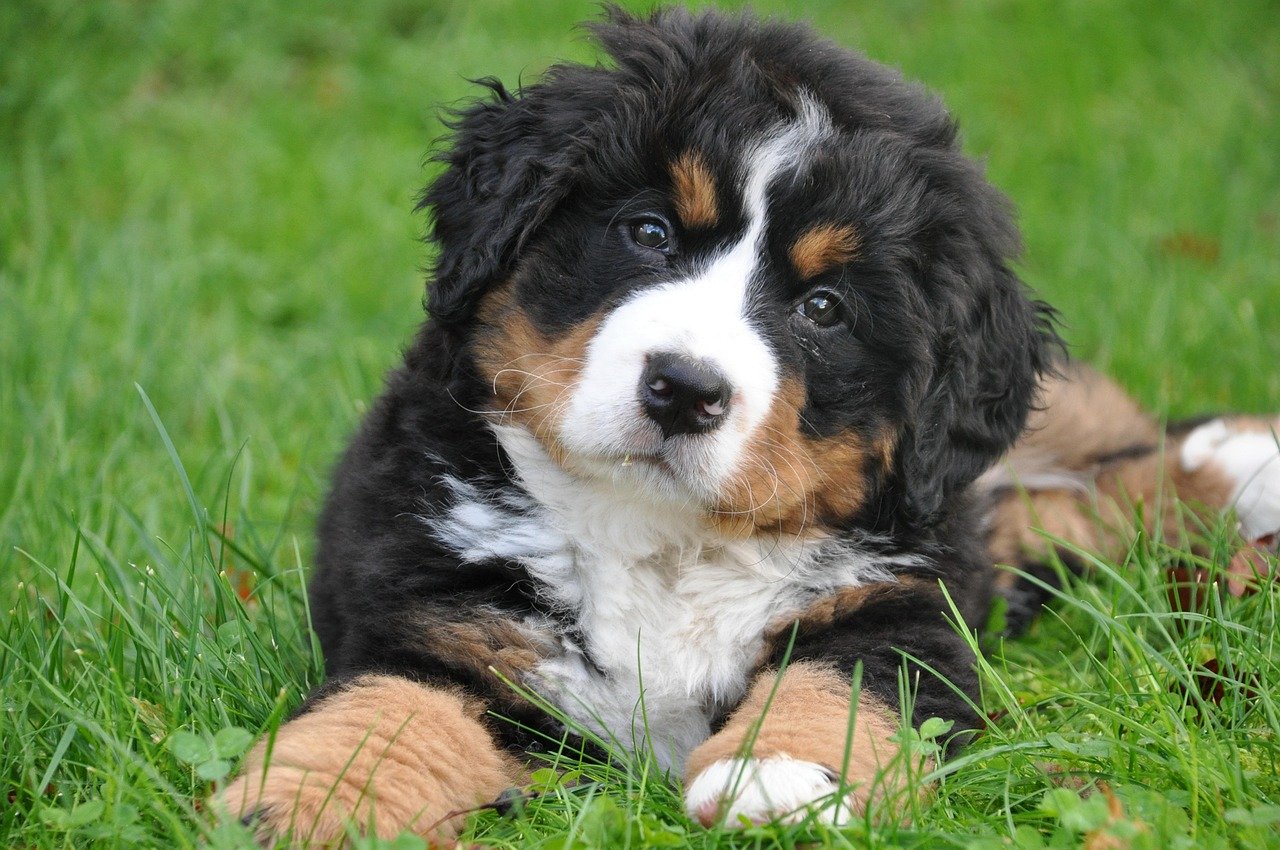
Bernese Mountain Dogs look majestic with their tricolored coats and large frames. Yet, their personality is even more impressive. They are known for being calm, gentle, and incredibly loyal. These dogs are especially patient with children and often form strong bonds with their families. Bernese Mountain Dogs are dependable, making them great for homes with lots of visitors or other animals. They rarely react aggressively, even in unfamiliar situations. Their gentle spirit, combined with a desire to please, makes them a dream for anyone looking for a trustworthy canine friend.
Irish Setter: Friendly by Nature
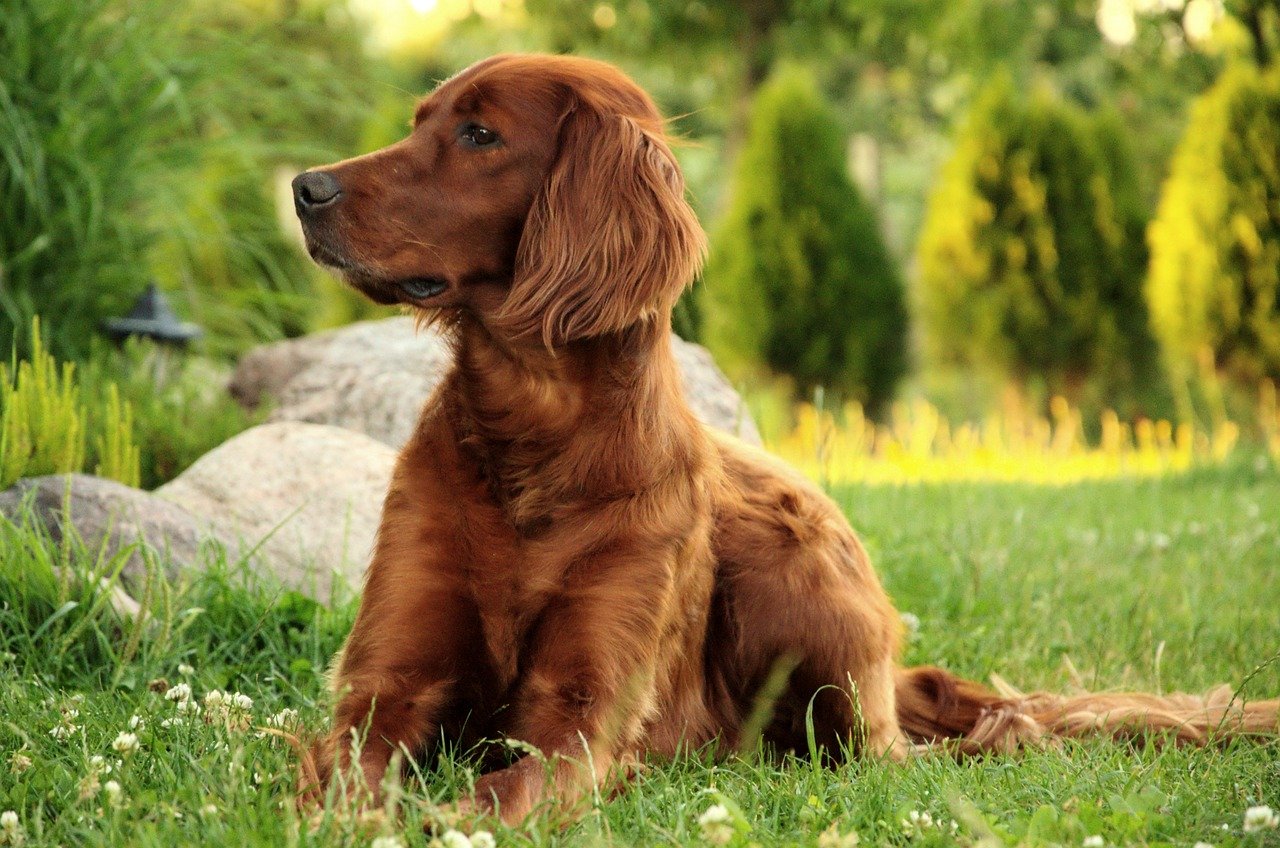
Irish Setters are a bundle of energy wrapped in a glossy red coat, but don’t let their lively antics fool you. They are famously gentle and affectionate. Irish Setters love to be part of the family and enjoy playtime just as much as quiet cuddles. These dogs are known for their friendliness toward strangers and rarely display any territorial aggression. Their gentle approach extends to other animals, making them a good choice for multi-pet households. Irish Setters thrive on positive attention and often become the heart of any home.
Basset Hound: Laid-back and Loving
Basset Hounds might look a little sad with their droopy eyes and long ears, but their hearts are anything but gloomy. These dogs are incredibly laid back and gentle. Bassets are slow-moving and patient, making them excellent companions for children and seniors alike. They have a strong sense of smell and love to follow scents, but rarely act out aggressively. Basset Hounds are known for their loyalty and affectionate nature. They tend to bond closely with their families, bringing comfort with their calm presence. If you want a dog that matches a slower pace, a Basset Hound is a perfect fit.
Collie: Loyal and Mild-Mannered
Collies have a reputation for being both smart and gentle. Thanks to their herding background, they’re protective without being aggressive. Collies are especially gentle with children, often taking on a caring, almost babysitter-like role. They are quick learners and respond well to positive reinforcement. Collies are also known for their empathy, often sensing when their family members are upset. Their calm, even-tempered nature means they rarely lash out. For families looking for a loyal, mild-mannered companion, Collies are a wonderful choice.
Papillon: Surprisingly Gentle for Their Size

Papillons might be tiny, but their hearts are enormous. Despite their small stature, they are known for being affectionate and gentle. Papillons love to be around people and often form deep bonds with their owners. Their playful spirit doesn’t come with aggression or stubbornness. Instead, they are eager to please and easy to train. These little dogs get along well with other pets and children, making them ideal for families. Papillons prove that even the smallest dog can be incredibly gentle.
Pug: The Comedian with a Soft Touch
Pugs have a knack for making people laugh with their silly antics and expressive faces. But beyond their funny exterior, they are gentle, loving dogs. Pugs thrive on human companionship and are happiest when they’re close to their family. They are not known for being aggressive, even when provoked. Pugs are adaptable, fitting into both lively and laid-back households. Their gentle nature means they get along well with children and other pets. If you want a dog that brings both joy and calm, a Pug is a great pick.
Great Dane: The Gentle Giant
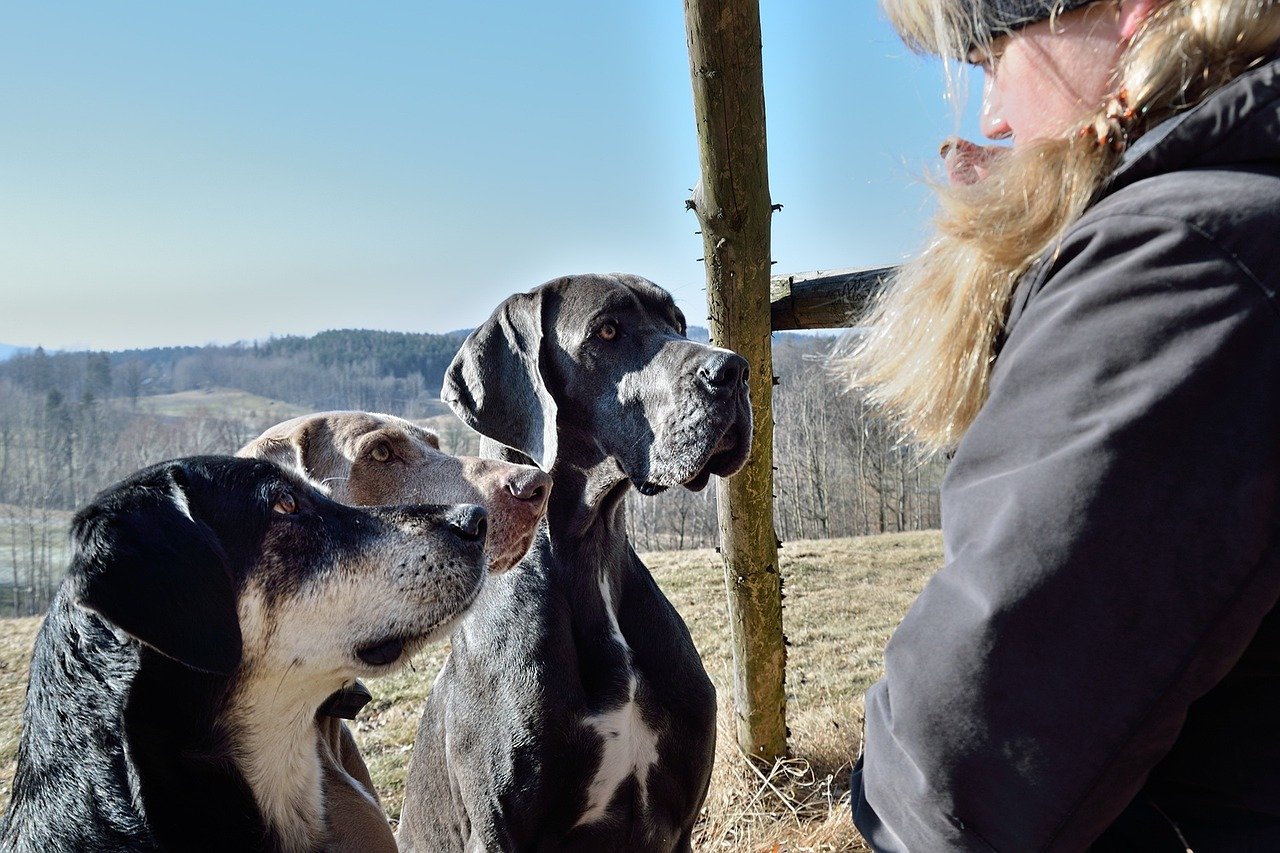
Great Danes are one of the largest dogs in the world, but their temperament is surprisingly soft. These gentle giants are calm, affectionate, and patient. They are known for forming strong attachments to their families, often following their owners from room to room. Great Danes are protective without being aggressive. Despite their size, they are careful around children and smaller pets. Their easygoing nature makes them a favorite among those who love big dogs but want a gentle personality. If you want a dog that combines size with sweetness, a Great Dane is hard to beat.
Siberian Husky: Energetic but Needs Guidance
Siberian Huskies are stunning, with their striking eyes and wolf-like appearance. But beneath the beauty lies a stubborn streak. While not aggressive, Huskies are highly energetic and independent, requiring firm training from the start. Without clear boundaries, they can become mischievous and even destructive. Huskies are known for testing limits, often escaping fenced yards or ignoring commands. They thrive with experienced owners who can provide consistent, positive training. If you’re drawn to their looks, be ready to invest time and energy into their education.
Dalmatian: Spirited and Willful
Dalmatians are famous for their spotted coats and endless energy. But their playful spirit can sometimes turn into stubbornness. Dalmatians need a lot of exercise and mental stimulation, or they may develop behavioral problems. They are strong-willed and can be a challenge for first-time dog owners. Early socialization and consistent training are essential. Dalmatians are loving, but their zest for life means they need structure to thrive. If you’re up for the challenge, a Dalmatian can be a loyal companion, but patience is a must.
Jack Russell Terrier: A Bundle of Energy
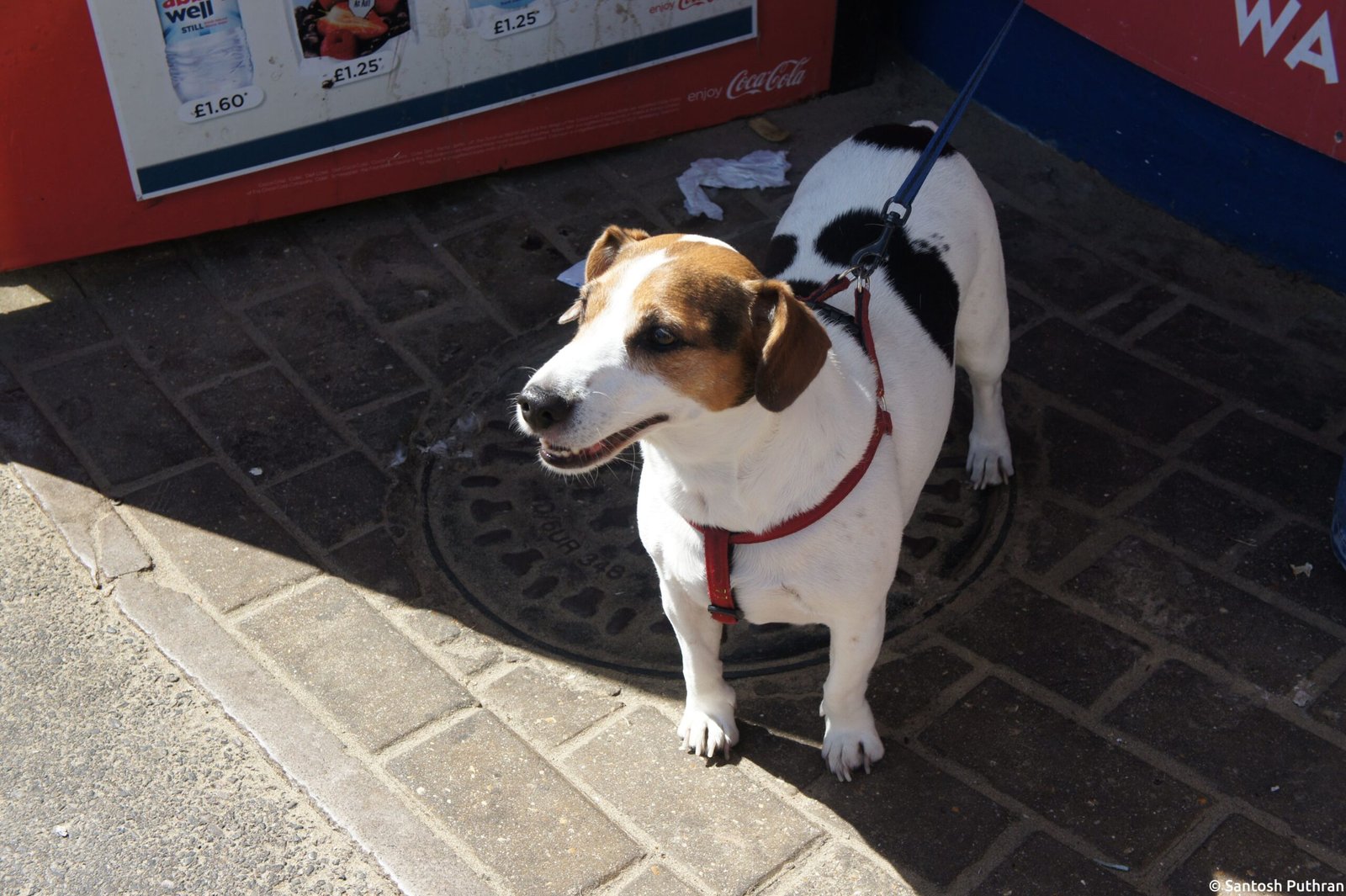
Jack Russell Terriers are tiny powerhouses. They are smart, energetic, and incredibly determined. Without enough activity and training, they can become unruly and even aggressive. Jack Russells love to dig, bark, and chase—traits that can be overwhelming if not managed. Early training is crucial to channel their energy in positive ways. They thrive with owners who can provide both mental and physical challenges. For those willing to invest the effort, Jack Russells are lively companions, but they are not for the faint-hearted.
Chow Chow: Dignified but Demanding
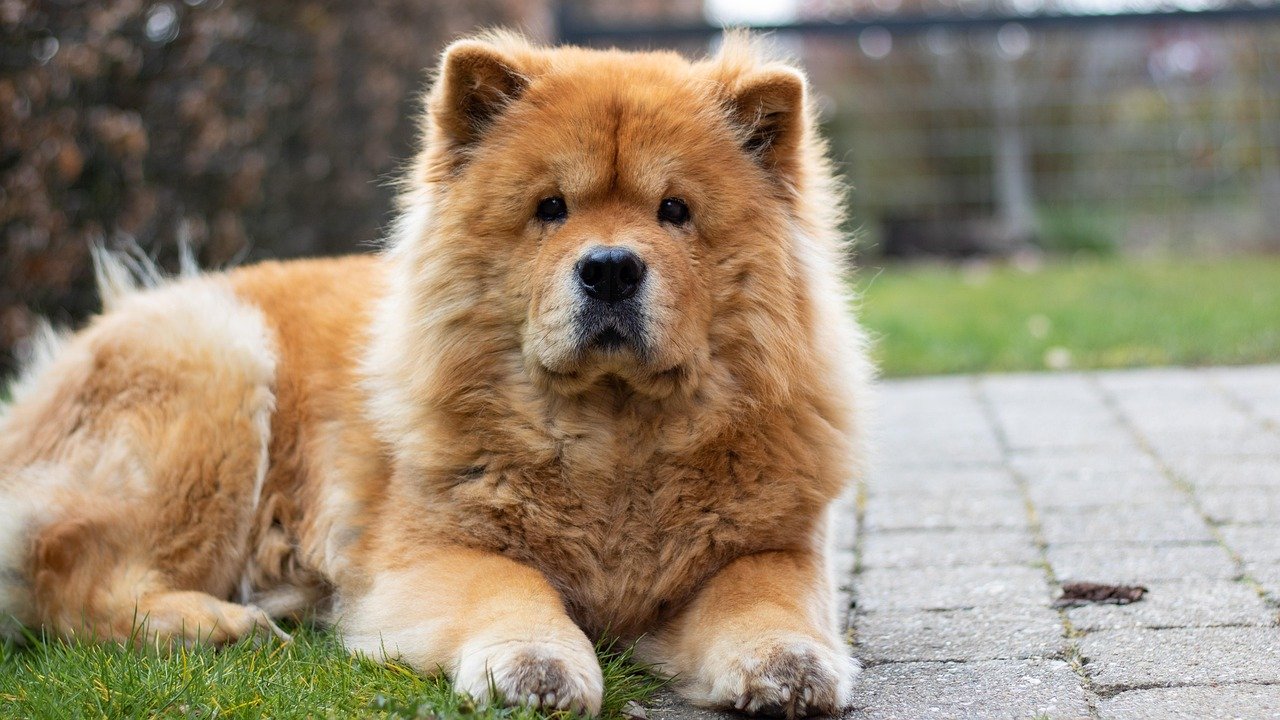
Chow Chows are known for their lion-like appearance and aloof personalities. While they can be loyal to their families, they often need firm, consistent training. Chows can be wary of strangers and sometimes even aggressive if not properly socialized. Their independent streak means they may ignore commands or resist authority. Early and ongoing socialization is key. With patience and experience, Chow Chows can be devoted pets, but they require a confident owner who can set clear boundaries.
Akita: Strong-Willed Protector
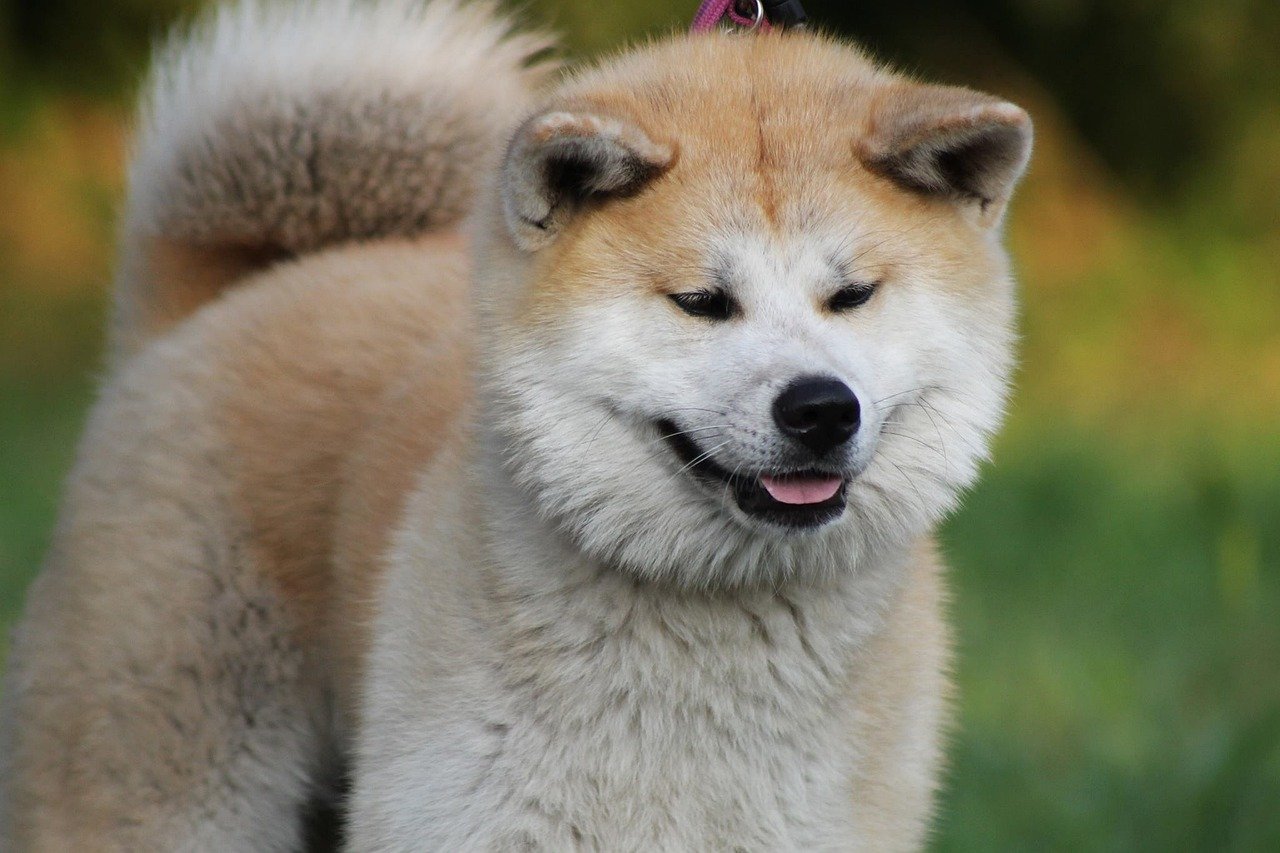
Akitas are striking, powerful dogs with a reputation for loyalty and bravery. However, they can also be stubborn and territorial. Akitas require early socialization to ensure they are comfortable around people and other animals. Without it, they may develop aggression or dominance issues. Training an Akita requires patience, consistency, and a gentle but firm approach. They are best suited for experienced owners who understand their unique needs. With the right guidance, Akitas are loving protectors, but they are not a breed for everyone.
Australian Cattle Dog: Intelligent but Independent
Australian Cattle Dogs are brilliant and energetic, bred to herd livestock with little supervision. Their intelligence can make them challenging to train, especially for novice owners. Without enough activity, they may become bored and resort to destructive behavior. These dogs need clear boundaries and plenty of mental stimulation. Consistent, positive training is essential to keep them focused and happy. For those who can match their energy, Australian Cattle Dogs are loyal and hardworking companions, but they demand a lot from their owners.
Weimaraner: High Energy, High Maintenance
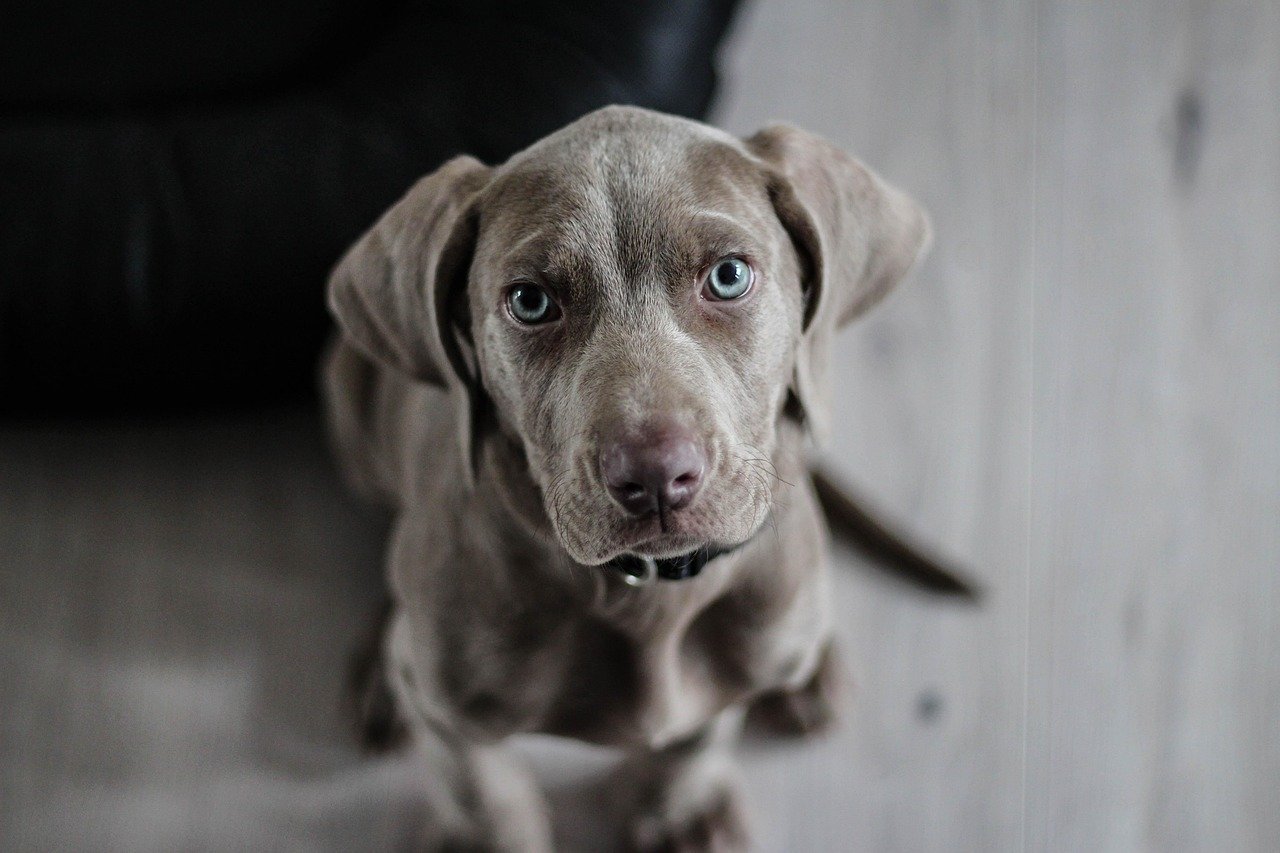
Weimaraners are sleek, silver-coated dogs known for their athleticism and intelligence. However, their energy levels are off the charts. Without enough physical and mental exercise, Weimaraners can develop anxiety and destructive habits. They are eager to please but need structure and clear rules. Training should start early and be ongoing. Weimaraners thrive with active families who can keep up with their pace. If you’re looking for a running partner, they’re perfect, but be prepared for the commitment.
Shar Pei: Reserved and Stubborn
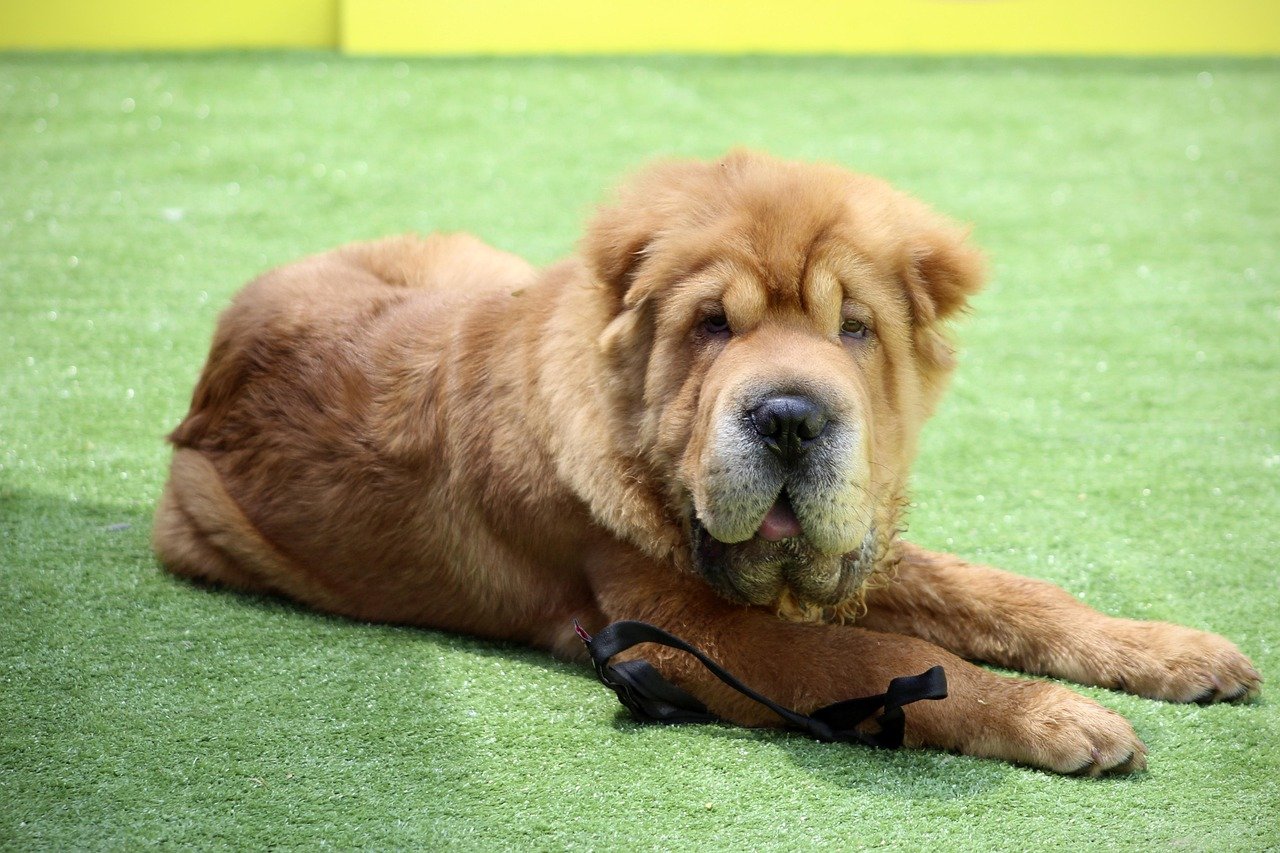
Shar Peis have a unique look with their wrinkled skin and expressive faces. They are known to be reserved, sometimes even suspicious of strangers. Shar Peis need patient, consistent training to build trust and prevent territorial behavior. Early socialization helps them become more adaptable. These dogs are independent and can be stubborn, so training must be firm but loving. With the right approach, Shar Peis can be loyal companions, but they require an experienced hand.
Doberman Pinscher: Loyal but Needs Structure
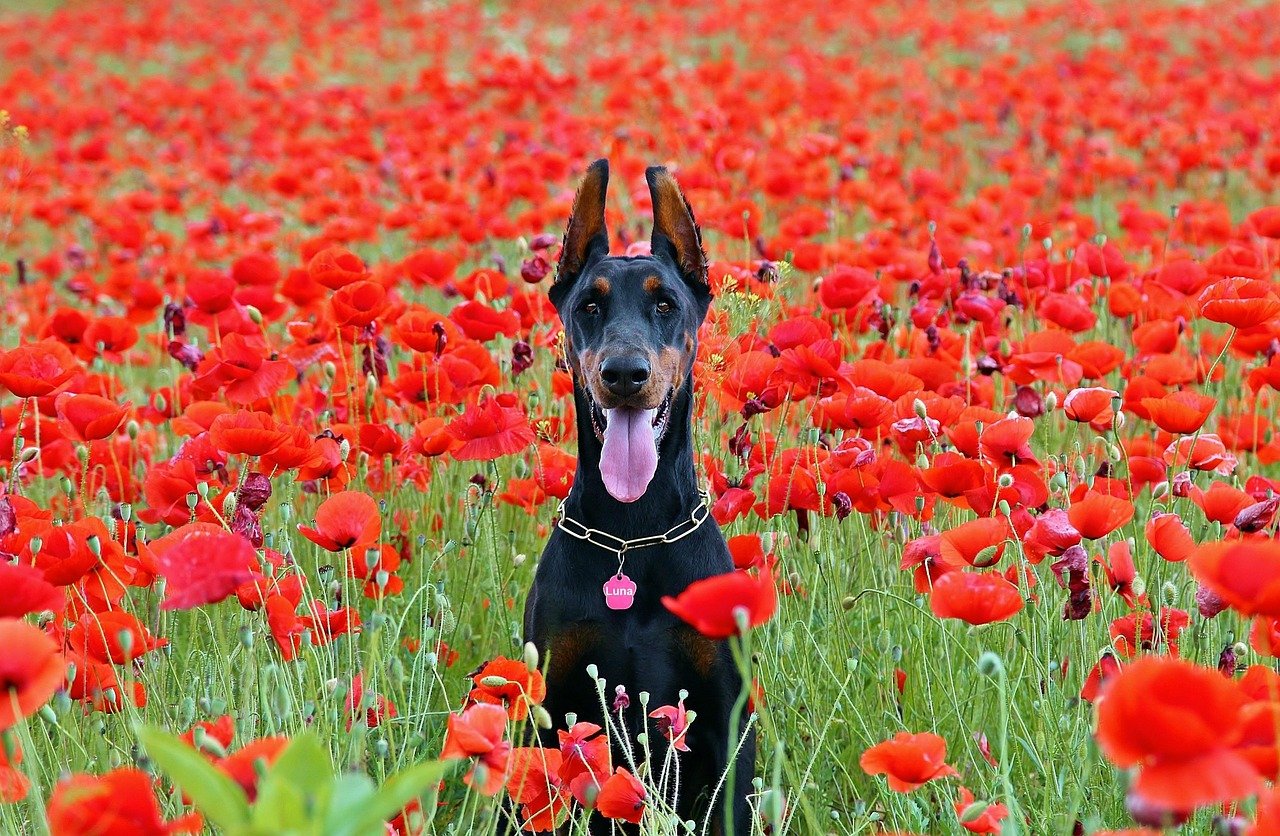
Doberman Pinschers are often misunderstood because of their strong, athletic build. While they are loyal and love their families, they need consistent training to channel their energy. Without structure, Dobermans can become overly protective or even aggressive. Early socialization is vital to help them feel secure and well-adjusted. Dobermans respond well to positive reinforcement and thrive with confident owners. For those willing to invest in training, Dobermans are devoted companions, but they are not a breed to take lightly.
Border Collie: Brilliant but Bored Easily
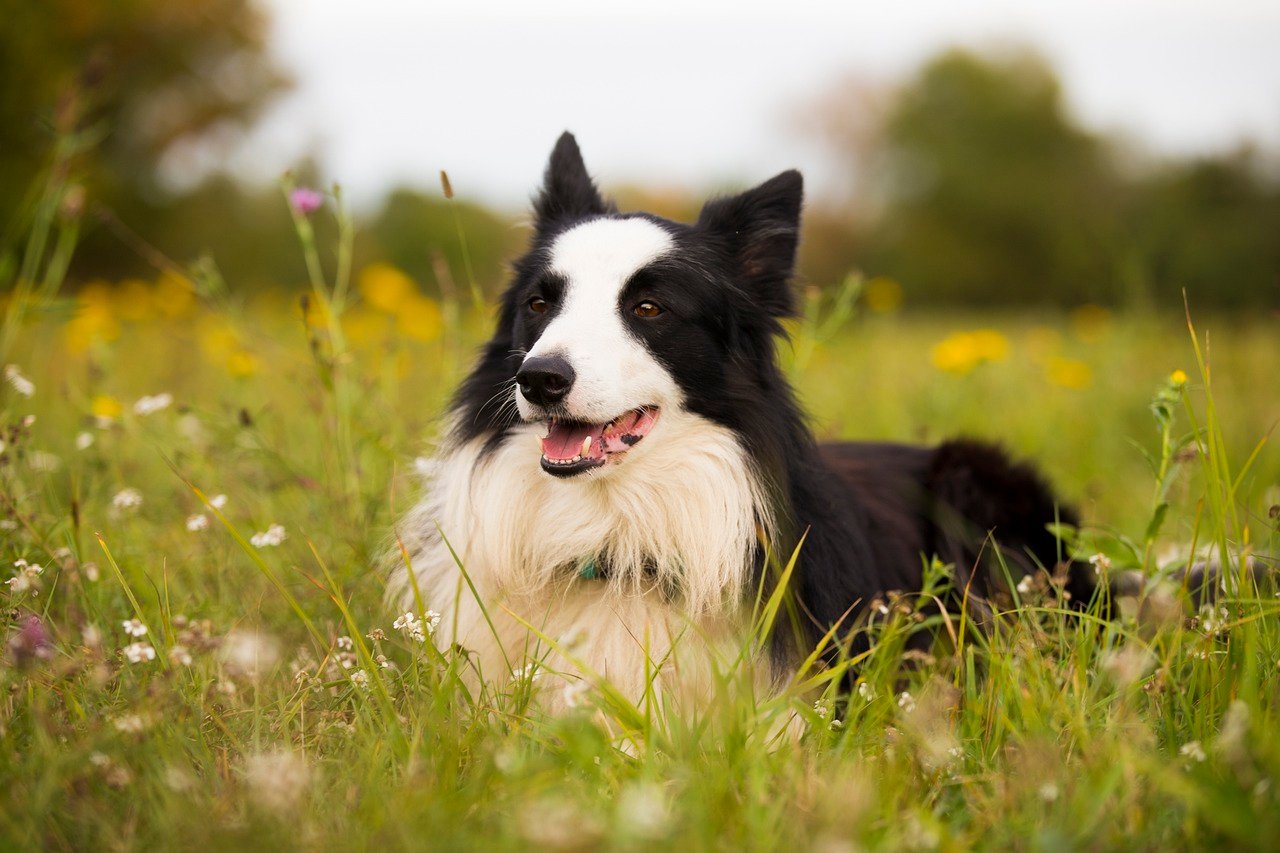
Border Collies are considered one of the smartest dog breeds in the world. However, this intelligence comes with a price. Without enough mental and physical stimulation, Border Collies can become restless and destructive. They need jobs to do, whether it’s herding, agility, or advanced obedience. Early and ongoing training is essential to keep their minds engaged. For active families or individuals who love challenges, Border Collies are unmatched, but they require dedication and commitment.
Belgian Malinois: Driven and Demanding
Belgian Malinois are often seen in police and military work for a reason—they are driven, focused, and highly trainable. However, this drive can be overwhelming for the average dog owner. Malinois need constant mental and physical challenges to stay happy. Without it, they may develop behavioral issues, including aggression or anxiety. Training must be firm, consistent, and ongoing. For those who can meet their needs, Malinois are incredible partners, but they are best suited to experienced individuals or families who understand their intensity.
When it comes to dogs, while there are characteristics of dogs that make them popular or unpopular in training, it is not usually the dog at fault. Proper training methods, proper dog parenting by humans and knowing how to bring out the best in your dog is imperative to owning a well behaved dog.
Jen is a passionate nature lover and ocean conservationist. She has dedicated her life to protecting the environment and preserving the beauty of the natural world. Growing up in a small coastal town, Jen sincerely appreciated the ocean and its inhabitants. She has spent countless hours exploring the shoreline, learning about the creatures that inhabit the waters, and advocating for their protection. Jen is an active member of ocean conservation organizations, and she is committed to educating the public about the importance of conserving wildlife and the natural environment.





